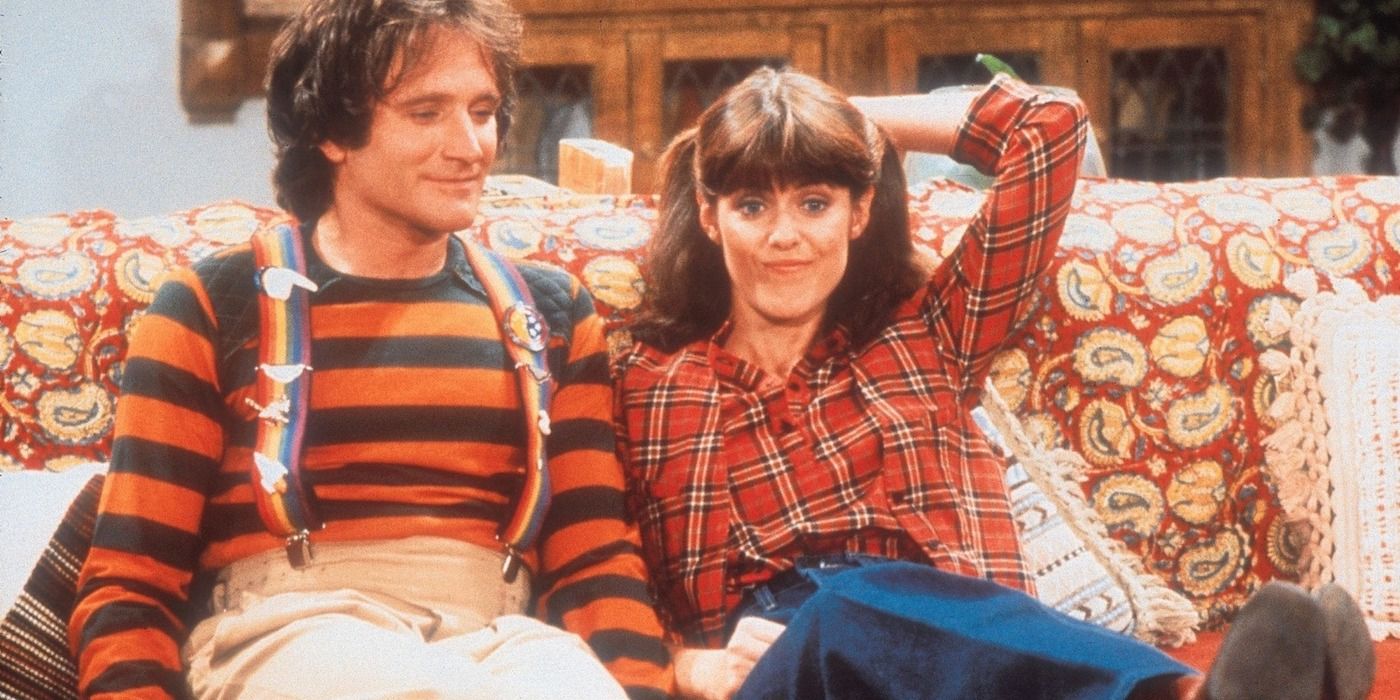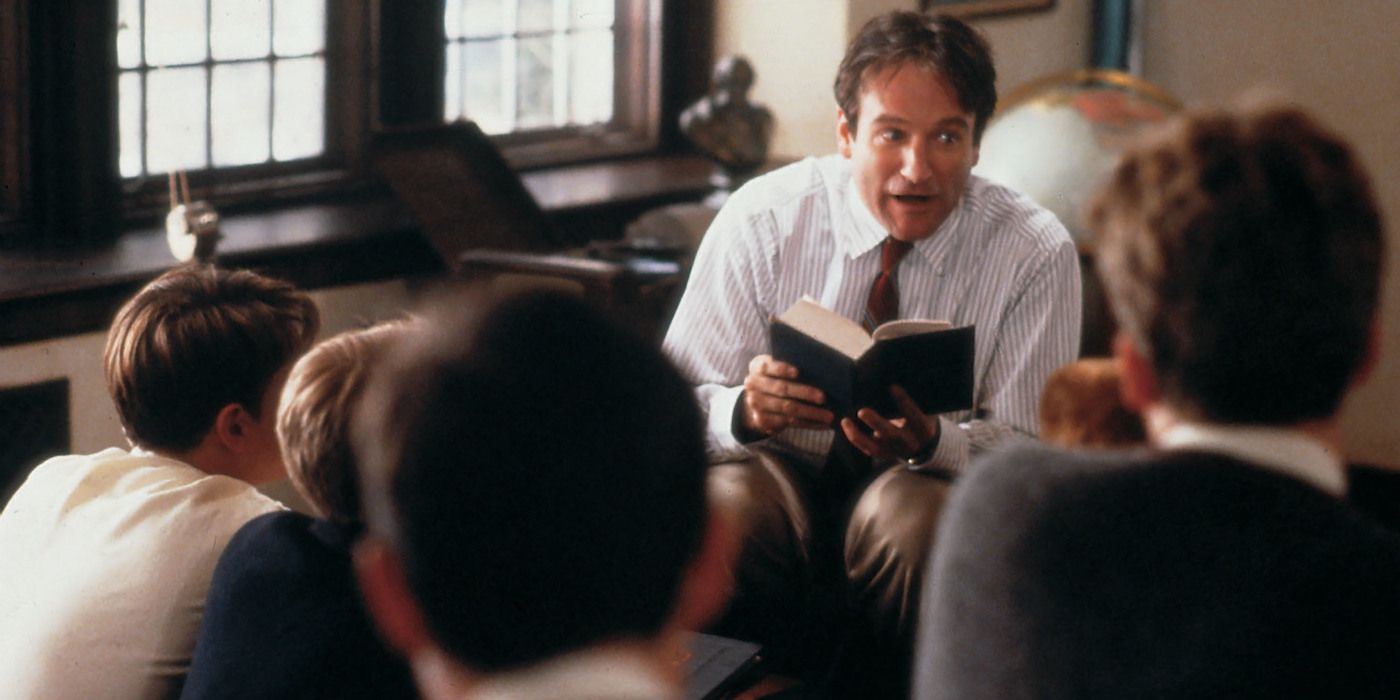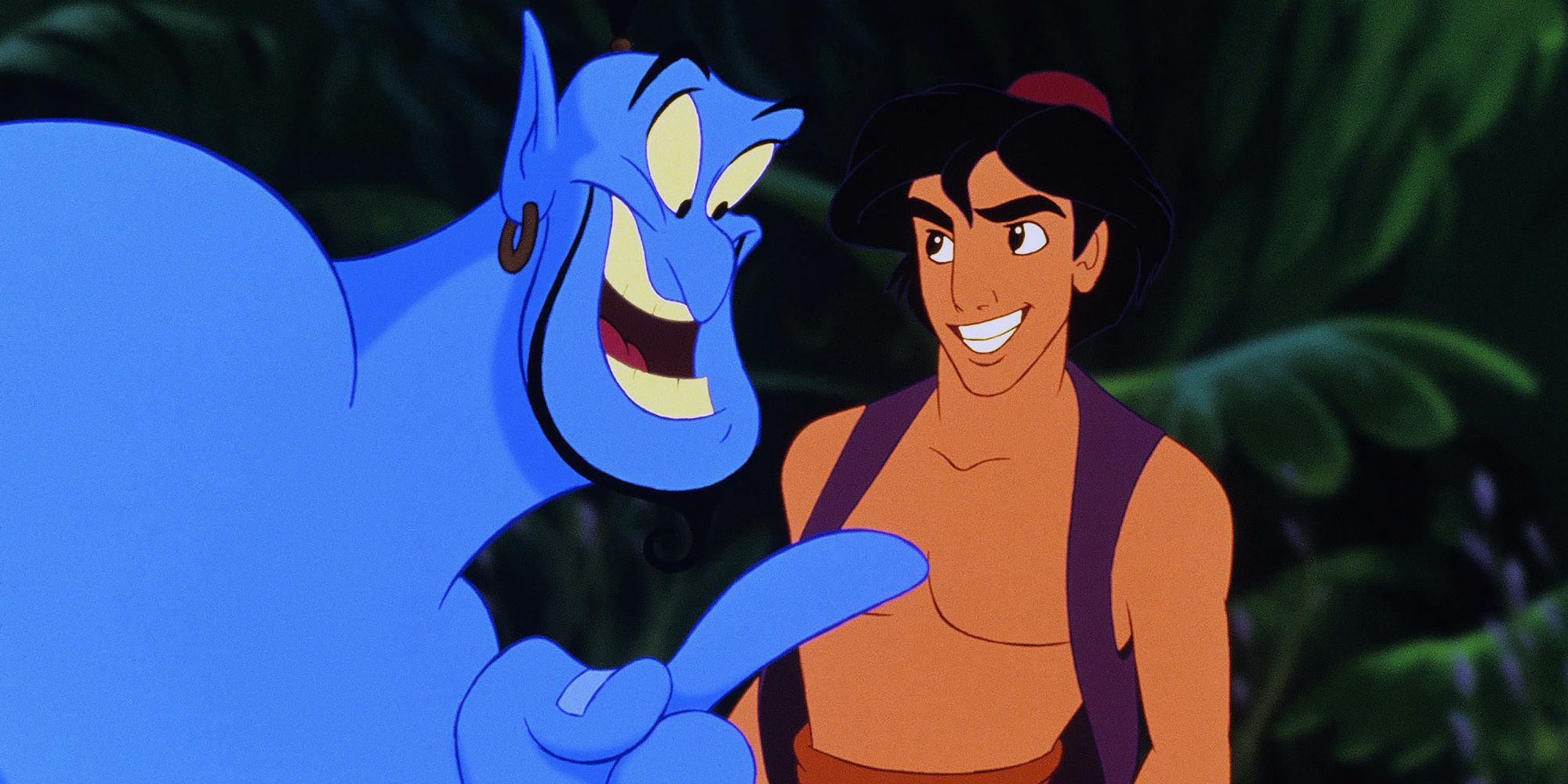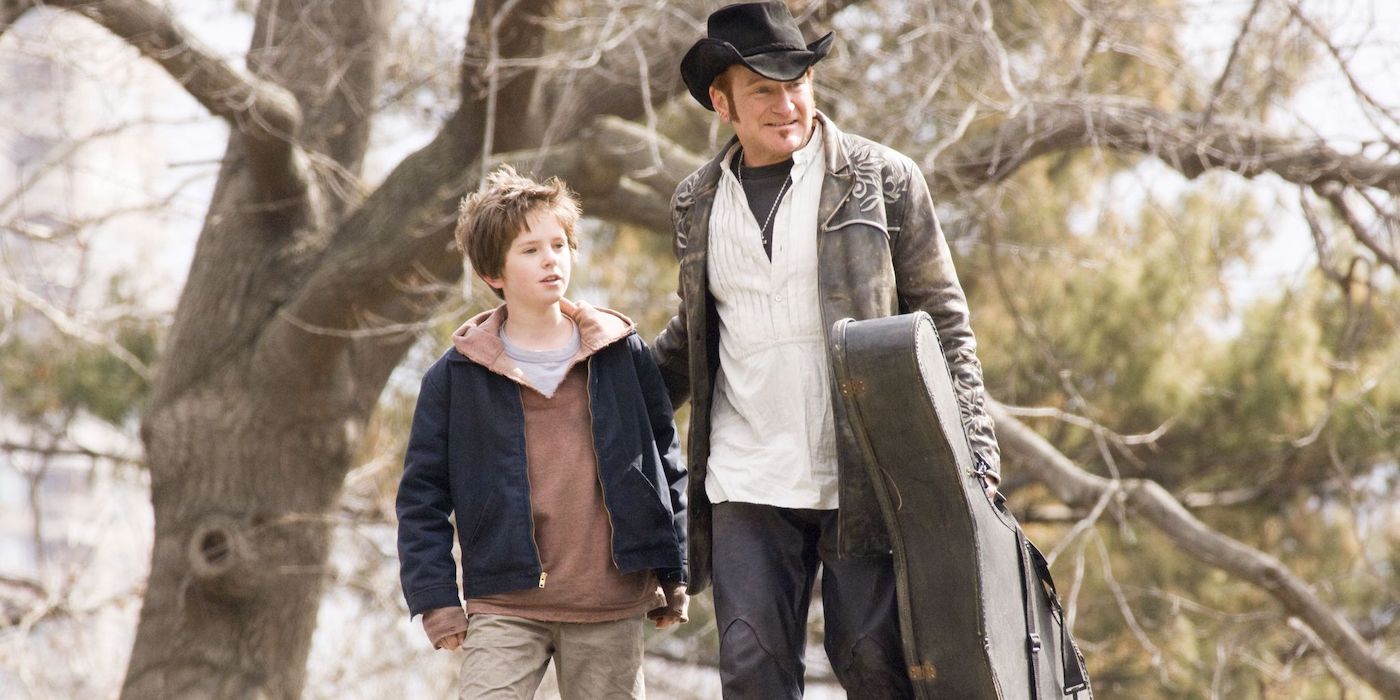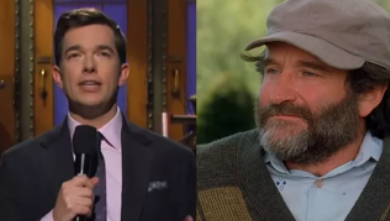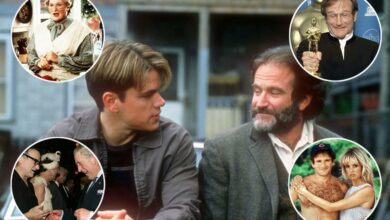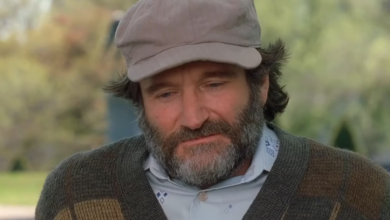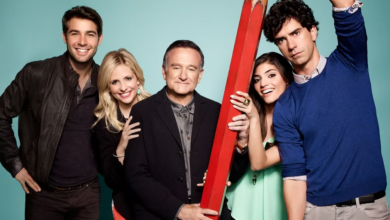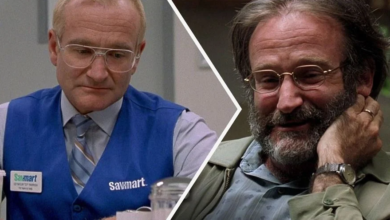The Hidden Message of Every Robin Williams Movie
Unlike most actors, Robin Williams had a common thread throughout his entire filmography.

Robin Williams will forever be remembered as one of the greatest comedians to ever grace the screen. His manic sense of humor was excellent and crass to capture the attention of adults but was also able to be managed into the shape of a real-life cartoon human, which spoke to children. He was a rare comedian and actor that truly was someone people of any age can enjoy. Besides being a legendary force of nature, he also connects with so many people emotionally when he shows up in something. Unlike most actors, Williams had a consistent theme in his filmography. Normally that is a trait exclusive to writers and directors, where they can more directly control their messages because they are the ones telling the stories.
For example, when you look at the filmography of someone like Sam Raimi, you can see he constantly comes back to stories that use supernatural or fantastical events to tell heightened morality tales and character studies. In contrast, actors tend to take on multiple and different kinds of roles to further show their range. But Williams always kept his eye on a certain lesson: the importance of being honest, open, and listening to others. It’s a lesson that sounds kind of schmaltzy but as life webs and flows, it’s something that people often need to be reminded of. Each role of his gets the point across in one way or another, even his roles that aren’t remembered as fondly. As someone who was open about his own struggles, it makes sense that he would want to dedicate his career to reminding people of this.
Humble Beginnings
This theme behind Williams’ performances can even be seen in his breakout role as Mork from Ork in the Happy Days spin-off, Mork and Mindy. For those that didn’t grow up on the TV of the 70s and 80s on the air or in reruns, Mork and Mindy was about a very energetic and childlike alien named Mork living with a human named Wendy (Pam Dawber) in Colorado. Mork was sent to Earth basically because on his home planet, he was an outcast and his peers were annoyed by his sense of humor. Each episode in the series finds Mork learning new things about Earth and humanity, and ends every episode by reporting his lesson to his superior, Orson (Ralph James). Even back in the 70s, this format of literally saying out loud the message of the episode in a speech was a major cliche.
But, thanks to Robin Williams’ electrifying presence and enthusiasm, it never felt like one in this show. This is where the theme of honesty and acceptance really begins in his career. Mork never means to be annoying or abrasive, at least not typically; it’s just who he is. We see him unapologetically talk about his feelings and how he is learning to be a better human. It was also good for the younger viewers of the show, seeing adult figures talk about their problems respectfully was a great influence even if it was not planned that way. The kids who watched this show would go on to become lifelong fans. It is a very obvious, and not particularly deep first showing of this theme, but it allowed him time to hone in on how he can bring a sense of warmth to his typical fast-paced and manic comedic stylings.
Then the 80s Happened
The 80s were when Williams was really trying to show off his range as an actor, to prove that he was more than just a loud TV character whose main joke was frantic gibberish and nonsense phrases. In movies like The World According to Garp, he doubled down on being a warming presence to tell a story about living life. It’s one of the rare movies where he’s not trying to steal each scene. He went on to make bigger films like Dead Poets Society and Good Morning Vietnam where he still remained charming and funny, but that wasn’t the point of his characters anymore. The moral of these performances comes back down to that honesty theme again.
These movies followed Williams as an audience surrogate. He is the fish out of water in these films, experiencing places, stories, and people that typically didn’t get any representation on screen at the time. In Dead Poets Society and Good Morning Vietnam specifically, he deals with very adult, complicated situations. He goes through the films actually working with people and listening to them. This is the side of honesty that really came to him during this era, the actual listening part. It’s one thing to be open with people, but it’s a whole other thing to be able to put aside yourself to help others. The fact that he was dealing with topics in these films like genocide and suicide only makes that message stronger, because in intense situations like that, the only way to keep moving on in life is by speaking and listening truthfully.
His Most Famous Run
The 90s will forever be the era that Williams will be most remembered for. A lot of that has to do with his voice performance as the Genie in Aladdin. The Genie was a character that became synonymous with Disney instantly, achieving the same iconic status as other Disney symbols like Tinker Bell. He’s so prolific in the company that he’s the name and face of one of their apps. The character is funny and memorable, but also marked Williams’ shift to catering to a new audience of kids through Aladdin and Fern Gully, while also picking projects to appeal to older viewers who have been watching him for years. Through Genie, he was able to show kids in a way that they can grasp, that it’s important to be open. He spends the entire movie telling Aladdin (Scott Weinger) to be himself. But the most important message of honesty that he shows in that film is how Genie is able to put aside his own anger to save Aladdin while they were still fighting. More than that, he doesn’t gloat or chastize when Aladdin admits Genie was right. He’s just there for him. That’s some honest friendship!
But then he bookended the decade with his performance as the therapist Sean Maguire in Good Will Hunting. The famous “it’s not your fault” scene that has been parodied to hell and back again still absolutely rips and perfectly shows how he was able to give a nuanced version for adults of this very simple concept. In the scene, he helps Will (Matt Damon) actually confront his own trauma that he has been avoiding. The character has a mental block that doesn’t allow him to see that he is not the reason his family was broken. A feeling so deeply ingrained into the character that he couldn’t see how many lies he was telling himself throughout his life. The performance is parodied for a reason, it’s because it’s so emotionally raw and beloved, not because it’s silly.
A Cautionary Tale
In the 2000s and beyond, prior to his death, Williams found himself playing roles showing what would happen if you are not open to others and attempt to respect and understand the struggles of others. In movies like World’s Greatest Dad or August Rush, he plays characters who are social pariahs that don’t have many people in their lives: both for wildly different reasons. August Rush is a very corny, but endearing version of Oliver Twist, and World’s Greatest Dad is one of the darkest comedies ever made, but the point is made in both. Especially in the context of Williams’ tragic death, caused by a disease people still don’t fully understand, it makes the message of these later movies even stronger. The goal shouldn’t be to grow into being a charming but snobby cynic like his later roles, all that does is push people away, as both films show. When you don’t attempt to understand others, it perpetuates socialized misconceptions. In his cautionary films, those misconceptions are still common in the characters at the end of the story.
We all love Robin Williams, we all have our own attachments to a variety of his different roles or have a favorite joke of his. In that spirit, we should honor his memory by taking this lesson of his into our daily lives. Sure, “be honest and empathize with others” is a pretty cliche message, but it’s a lot harder to take that message to heart and be true to it in real life than other schmaltzy lines like “the real journey was the friends we made along the way.”

